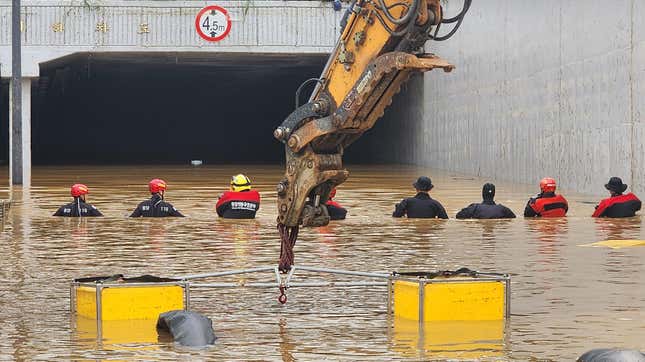
South Korea has had to deal with torrential rainfall over the past several days. Nearly two feet of rain falling across the country has caused flooding and landslides, destroying buildings and roads. The storms have killed 40 people so far, with many still reported missing. The most significant loss of life has been the flash flooding of a tunnel that killed 13 people.
There were 16 vehicles inside a 0.425-mile-long tunnel in Cheongu, 68 miles south of Seoul, when a river levee broke and overwhelmed the passage with water. While rescue efforts have found nine survivors, 13 bodies have been recovered from the floodwaters. Divers are still searching for missing people who may still be trapped in their cars.
According to Reuters, drivers in South Korea have blamed the tragedy on the local government for not banning access to the tunnel despite the weather forecasts. South Korean President Yoon Suk Yeol agreed with the criticism. He stated, “We’ve repeatedly emphasized access control over dangerous areas and preemptive evacuation since last year, but if basic principles of disaster response are not kept on the spot, it is difficult to ensure public safety.”
President Yoon promised to make a more concerted effort to withstand natural disasters provoked by climate change after Seoul had its worst rainfall in 115 years in August 2022. The Washington Post reports he said today, “We need to completely dismantle thinking that these extremes are an aberration.” When these once-in-a-century storms now happen annually, something has to be done to mitigate their impact and shape our climate to reduce their frequency.